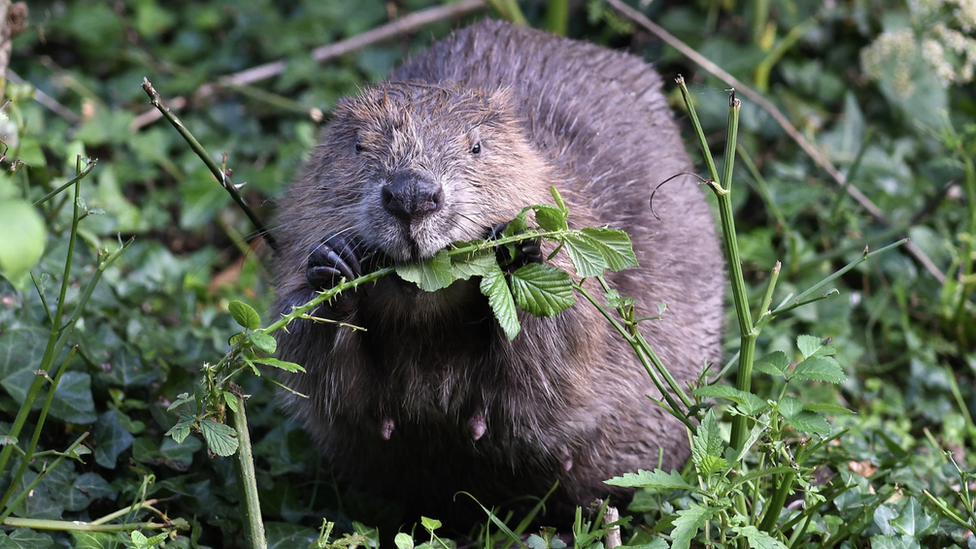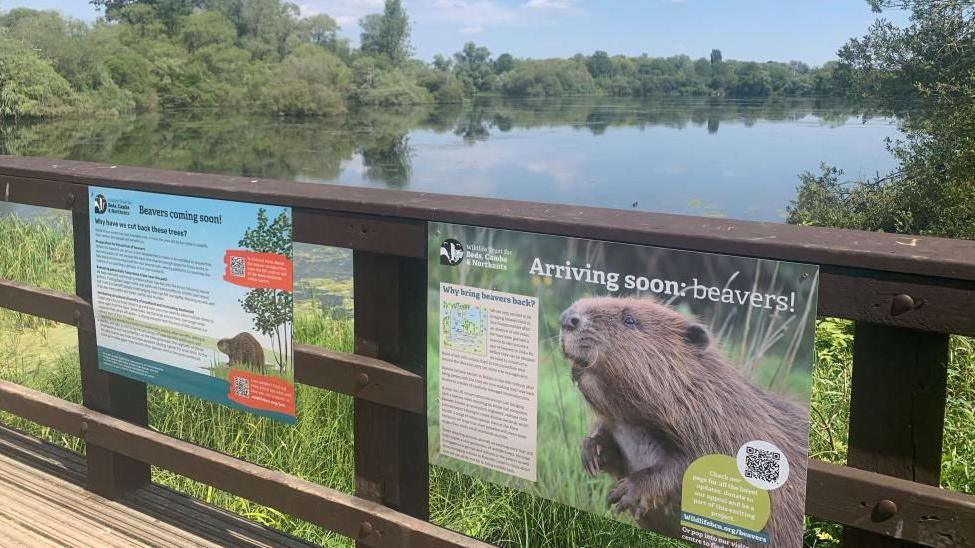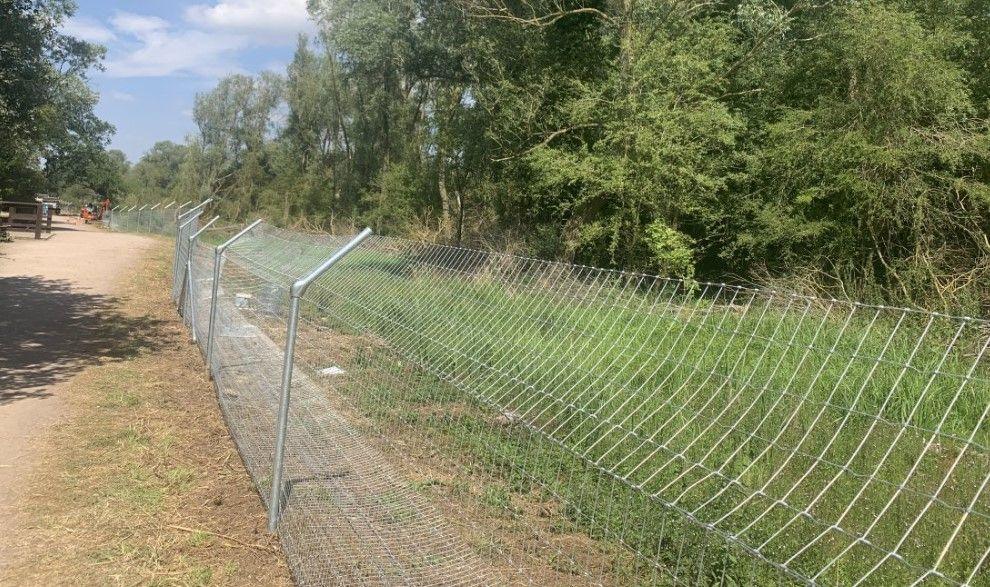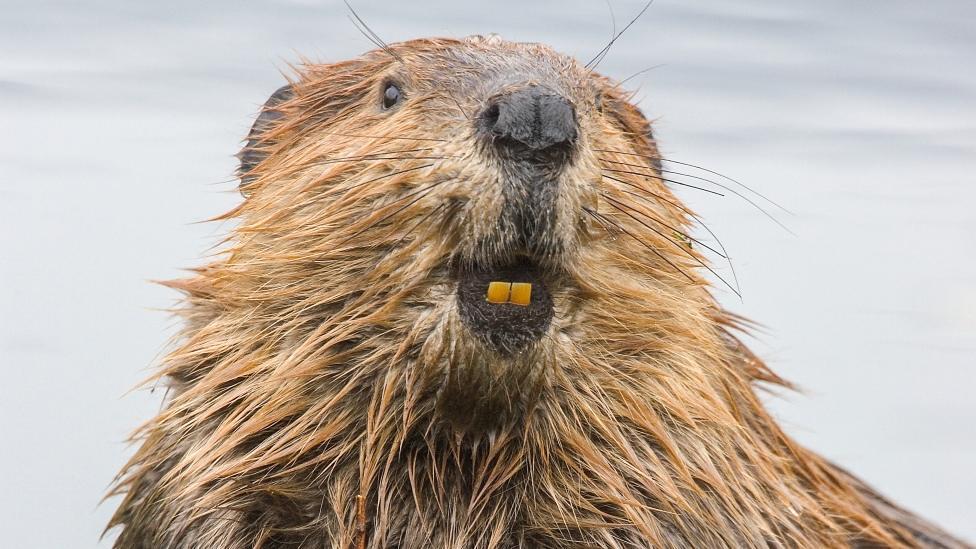'Bed and board' ready for new beaver arrivals

Beavers are "nature's engineers" and are known for improving biodiversity and enhancing ecosystems
- Published
Work is under way to create a wetland habitat to encourage beavers to return to an area for the first time in 400 years.
The dam builders are being reintroduced to the Nene Wetlands nature reserve, near Rushden in Northamptonshire.
The Wildlife Trust is working with Anglian Water to release a family of beavers into a new enclosure at Delta Pit, costing £180,000.
Matt Johnson, conservation manager for the trust in Northamptonshire, said it was a "really exciting opportunity to bring back a mammal species missing from our landscape for 400 years".
Mr Johnson said bringing in the beavers would be a "good natural way of managing the site for us" because of the "very wet" area.
"We're providing bed and board and they're providing the labour."
Ben Casey, the Nene Valley projects officer for the Wildlife Trust in the county, said: "In England we have to keep [beavers] contained and make sure that they are only affecting the lands that have been agreed by Natural England and the Beaver Trust - and make sure they're not causing trouble downstream for farmers.
"The long-term goal is always to have this species as free-living across the country," he said.
"Obviously you do run into problems here and there... but if beavers are allowed to dam further upstream from that area then it can help those landowners, but obviously it would be a long-term goal over the next five to 10 years to have beavers outside of this enclosure."

Billboards proudly announce the imminent arrival of the beavers
As the enclosure is close to a very popular and busy shopping centre, Mr Casey was asked if beavers could end up sharing a coffee at the local cafe with visitors.
He replied: "The vast majority of the behaviour of beavers, we can predict.
"But, as with all animal species, there's always that five per cent where they go a bit rogue and you know, they might pop up somewhere else."
The current project is using metal fence posts because beavers can easily chew through wood, and mitigation measures are being put in place to restrict the animals from getting over or under the enclosure, said Mr Casey.
He admitted beavers were "a bit wily" and were likely to "test the fence... but that's why we're putting in so much effort to make sure they won't do that", he added.

Fencing and other measures are being put in place to protect the beaver sanctuary
Mr Casey said the terms of the licence from Natural England meant the trust would need to keep the beavers in one area and monitor them over the next five years.
"I'm excited to see what happens after they arrive as they set to work managing this ecosystem in their own unique way," he said.
"As they gnaw trees, feed, build a lodge and start a family they will be transforming the area into a diverse wetland habitat which will support a range of other species."
Get in touch
Do you have a story suggestion for Northamptonshire?
Follow Northamptonshire news on BBC Sounds, Facebook, external, Instagram, external and X, external.
Related topics
- Published6 July 2023
